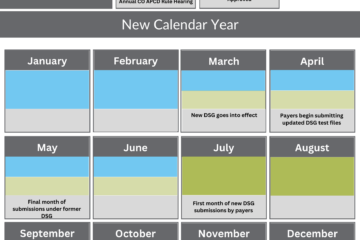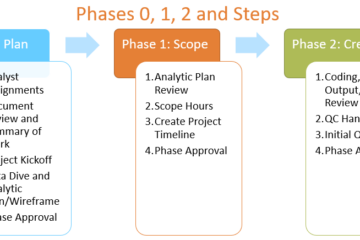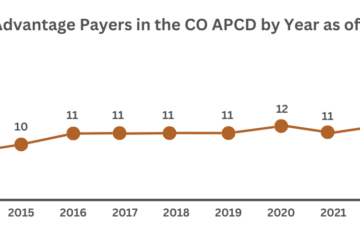Non-Claims Data in the CO APCD
The Colorado All Payer Claims Database (CO APCD) contains medical, dental, vision, and pharmacy claims from the majority of insured individuals in the state. However, claims data highlights only a portion of how the health care system functions. There are numerous other non-claims components within the system that impact an individual’s health or the cost of their care. The CO APCD is one of the few APCDs in the country to receive non-claims data about two of these components: Alternative Payment Models (APMs) and prescription drug rebates. With information on both, the CO APCD offers a unique glimpse into the less explored aspects of health care.
Alternative Payment Models
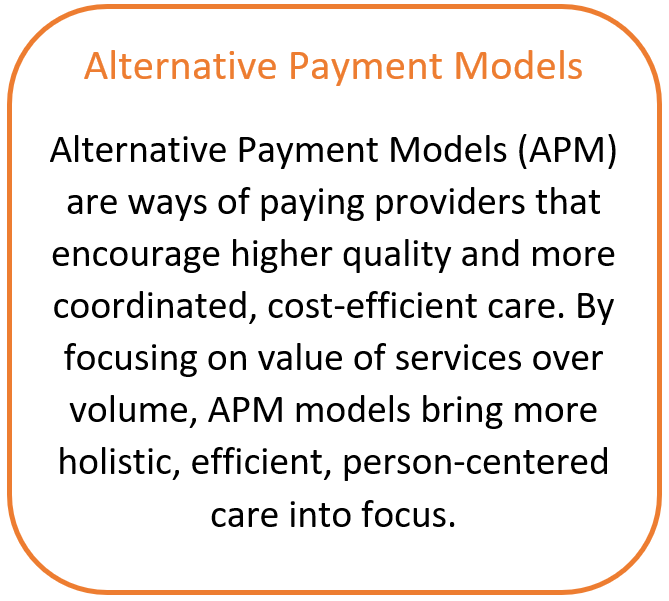
As health care costs continue to rise, legislators, community partners, and providers across Colorado have been seeking solutions to curb prices while improving the quality of care and overall population health. Health insurers have been partnering with p
roviders and facilities to gradually shift away from the fee-for-service model, linking payments to high-value care and creating more affordable care options through payment reform, or alternative payment models (APMs).
CIVHC began collecting APM data into the CO APCD in 2019, after the Colorado legislature mandated the collection of APM data and its inclusion in annual reporting on primary care spending in Colorado for the newly established Primary Care Payment Reform Collaborative, led by the Division of Insurance (DOI). By working with the Collaborative, the DOI, and other partners, CIVHC has improved APM file submission quality to more accurately report APM use in Colorado. Beginning in 2020, all files were required to align with APM categories based on standards created by the Health Care Payment Learning & Action Network.
APM files for 2020-2024 will be collected in September 2025 according to the specifications in the Data Submission Guide (DSG) 15, which went into effect in March. DSG 15 also introduced the annual collection of Capitation files, designed to capture details about capitated payment arrangements between payers and providers. This new file allows CIVHC to collect data on these arrangements to provide transparency on APM models and better understand care and delivery structures. CIVHC continues to evaluate submitted files and identify opportunities to work with payers to improve data specifications around collection of APM data.
CIVHC recently released an updated public report on the use of APMs in Colorado between 2021 and 2023. For more information, view the interactive dashboard and download the data file.
Drug Rebates
Prescription drugs represent one of the nation’s most significant drivers of rising health care costs. But the system through which they move is historically opaque, and until recently, not much was known about the volume of drug rebates collected by commercial payers in Colorado.
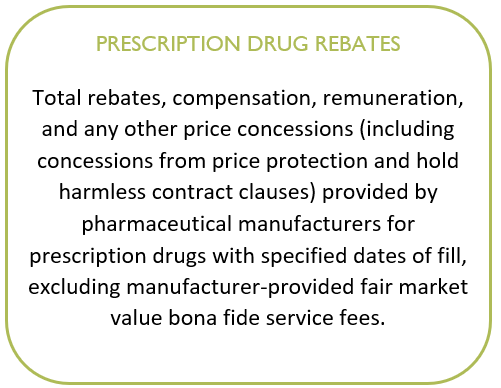
To address this issue, and as part of state efforts to constrain health care costs, CIVHC began collecting drug rebate information in 2019 to better understand how dollars are exchanged in the system and whether any savings from rebates are being passed along to consumers or employers. Like APM files, drug rebate information is submitted annually and collected each September according to the rules laid out in the DSG.
In the spring of 2025, CIVHC released an update to the CO APCD interactive report analyzing prescription drug spending and rebates based on annual drug rebate file data collected in September 2024. The currently available prescription drug analysis covers drug spending data for 2021-2023. CIVHC updates the interactive public report annually and continues to work in close collaboration with payers to evaluate submissions and establish clearer requirements.
Colorado policymakers continue to prioritize addressing the price of prescription drugs, supported in part by the insights provided by CIVHC’s reporting. In collaboration with CIVHC, the Department of Health Care Policy and Finance (HCPF) has taken several steps toward these goals. Two prescription drug annual files support this state-led work:
- Data to support the Prescription Drug Affordability Board (PDAB) created by SB 21-175by allowing them visibility in to which drugs account for the highest spending in Colorado. The bill requires the addition of an additional PDAB file to the CO APCD to collect additional drug affordability data. The first set of data was delivered to the Division of Insurance (DOI) for analysis in February 2022.
- Data to better understand how reimbursements for value-based pharmaceutical contracts (VBPC) are structured.
Additionally, as with APM data, the current DSG contains updates to previously collected elements to clarify and add collections to data fields to improve the quality of submitted data.
To learn more about APM and drug rebate file submissions, visit CIVHC’s submissions page and contact us at info@civhc.org.
